It’s been one month since Ibrahim al-Shaham, his wife, and five children have had a good night’s sleep.
Most nights they stay awake until the sun comes up before they can rest their eyes and quiet their minds; the sunlight beaming through their windows is the only form of protection against the nightmares that keep them up at night.
“I still feel like I’m dreaming. Like I’m in a never-ending nightmare, just waiting to wake up,” Ibrahim told Mondoweiss from his living room, his voice quiet so as not to disturb his family. It was past noon, but they had just gone to sleep a few hours prior.
“This is what our life is like now. Everything is upside down. Since Mohammad was killed, we feel lost,” he said.
Ibrahim’s family lives in a large apartment building, cramped between the hundreds of other buildings just like it in the crowded Jerusalem neighborhood of Kafr Aqab, which lies on the West Bank side of the Israeli separation wall.
The only thing distinguishing the al-Shaham family home from the other beige-stoned buildings around it, are the dozens of Palestinian flags, posters, and bright-yellow flags of the Fatah movement that crowd the entrance to their building.

The flags and posters are a somber sight in Palestine – it’s the mark of a home of a ‘martyr’, someone who has been killed by the Israeli occupation.
The martyr is Mohammad al-Shaham, Ibrahim’s 21-year-old son. The middle child of six – three boys and three girls – Mohammad played a unique role in his very unique family.
“He was more than just a son or a brother, he was a caretaker. That was his real job, his true calling. To take care of his siblings,” Ibrahim told Mondoweiss, looking over his shoulder at one of the many posters of Mohammad that now adorn the inside of his living room.
Both of Mohammad’s brothers, Sanad, 23, and Ahmad, 19, along with their younger sister Rayan, 17, are blind. With their older sister married and living out of the house, Mohammad was the oldest sibling who could see, and so he took on the role of helper, protector, and caretaker from the time he was a teen.
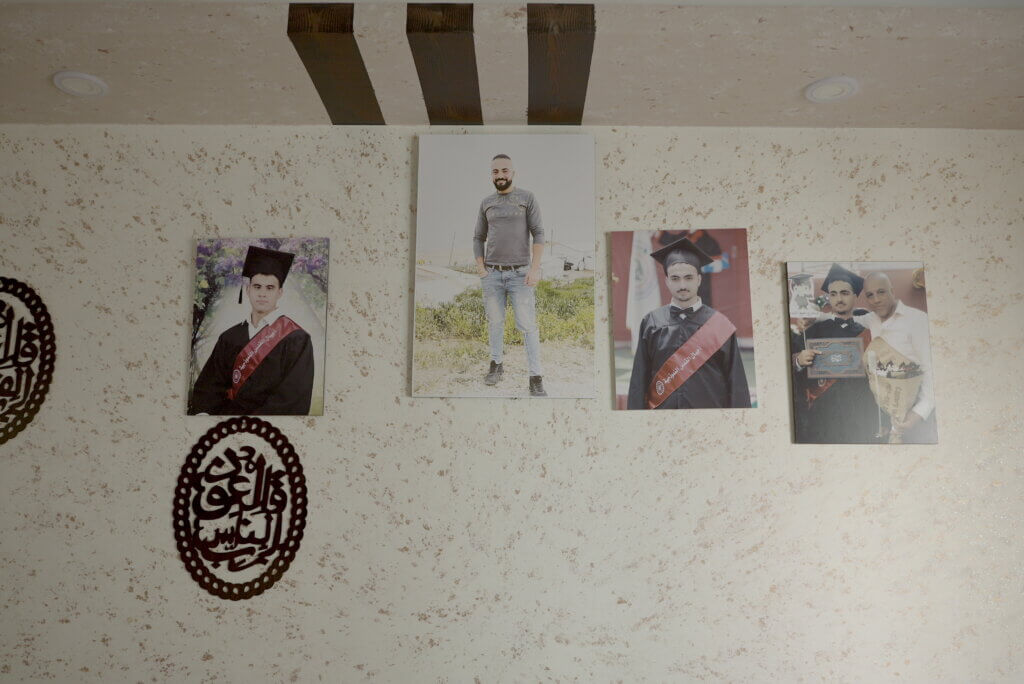
“Mohammad used to take his siblings to school, and when they got older and started studying at university, he would accompany them there as well,” Ibrahim said. “He never made them feel like they were different.”
Just a few days before he was killed, Mohammad took all his siblings out for ice cream and milkshakes.
“They had such a good time, they took a bunch of photos and sent them to us that day,” Ibrahim remembered fondly.
“Now his siblings don’t even want to go to school. They say they don’t want to do anything without Mohammed.”
The killing
It was a warm summer night on August 15th, and Sanad was sitting in the family’s living room, while the rest of his family slept. It was 4:00 am, and he was up all night studying for a big university exam.
Things were quiet, when all of sudden, he heard heavy and rapid pounding on the family’s front door. He jumped off the couch, and made his way to the door of the living room, just an arms reach away from the front door, when Ibrahim intercepted him.
“My wife woke me up suddenly, saying there was someone at the door, and maybe it was the [Israeli] army,” Ibrahim recounted. “I ran out and found Sanad by the door. He was scared, he didn’t know whether to open it or not.”
After that moment, everything happened fast.
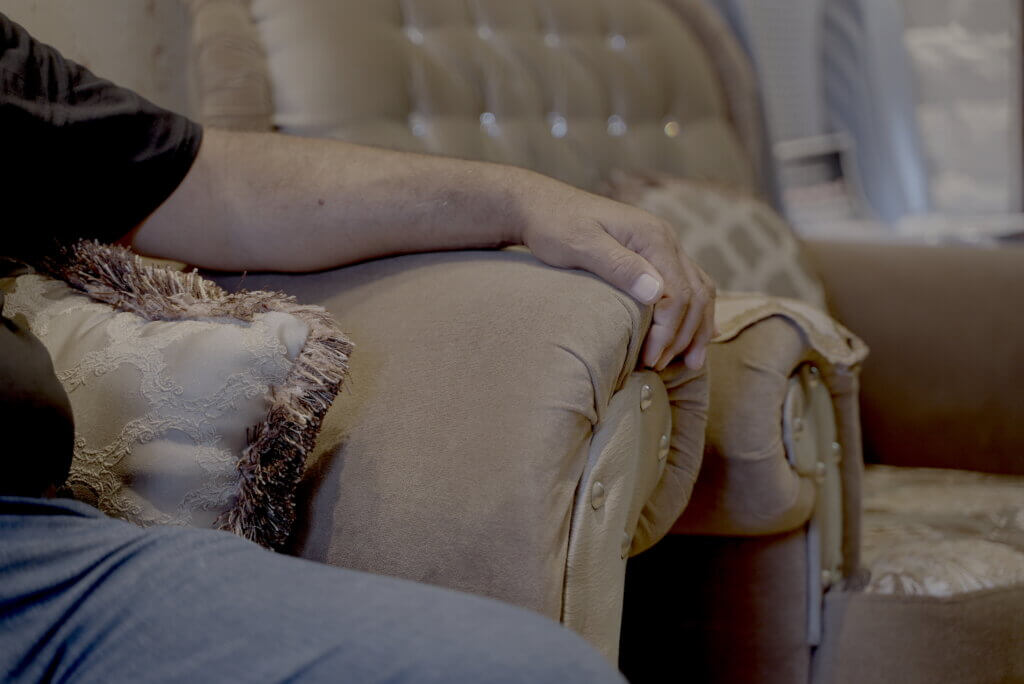
Before Ibrahim could open the door, it swung open, with masked Israeli armed forces on the other side, their weapons drawn.
“They hadn’t even crossed the threshold of the home when they started firing at us,” Ibrahim said. “I instinctively grabbed Sanad and pushed him back into the living room with me, and covered my head with my arms.”
In the commotion, Ibrahim heard what he described as three muffled pops. Unable to gauge where the sound was coming from, he thought the soldiers had fired sound grenades into the house.
But when he looked down, peering from the living room into the entryway, he saw a horrific scene that will stay with him for the rest of his life.
“I saw Mohammad laying down in front of me, blood spilling from his head,” he said. It was then that he realized the sounds he heard were not sound bombs, but live bullets being fired from one of the soldier’s pistols, equipped with a sound suppressor, at his son.
“Mohammed had woken up to the sound of the soldiers breaking down the door. He was running to the entryway at the same moment the soldiers broke down the door, and they fired on him immediately,” Ibrahim said.
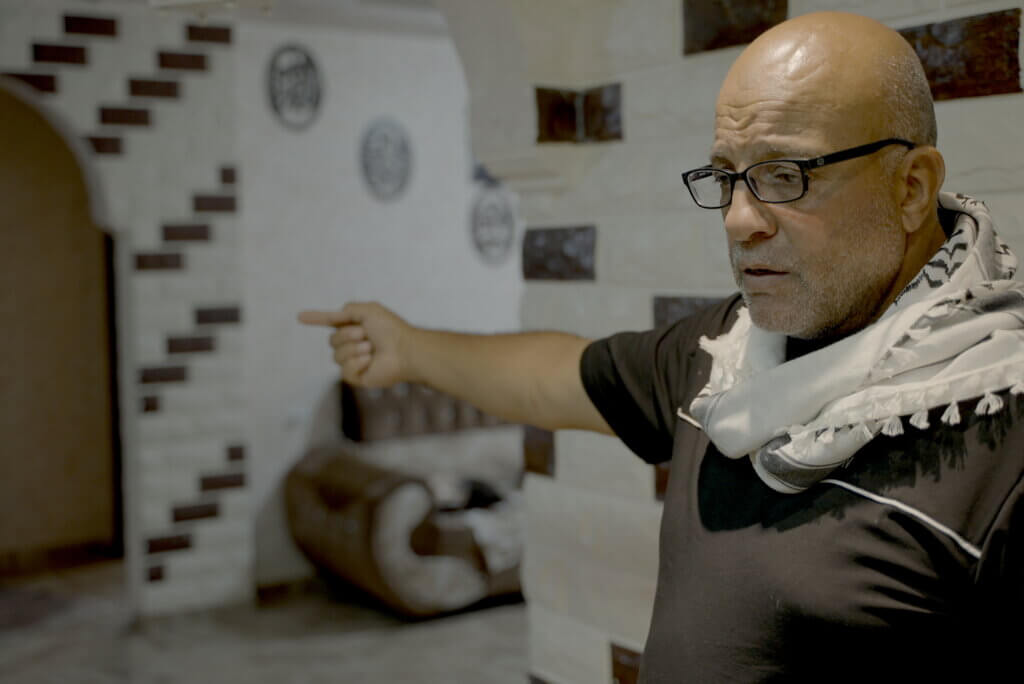
By this time the whole family had been woken up. Those with their vision could see Mohammad lying on the floor, with blood pooling around him. Sanad, Ahmad, and Rayan could only hear the screams of their mother, father, and youngest sister.
“Everyone was screaming and crying, the soldiers started pushing and shoving us around. We were still in our pajamas, we were half asleep, and everything was happening so fast,” Ibrahim said.
Ibrahim said the soldiers pushed and hit his wife, as well as Sanad and Ahmad, and raised their guns at the girls. It was then, he said, that another 10 soldiers among the dozens who were stationed outside the family’s building, came running into their home.
“I was on the floor, yelling ‘Mohammad, Mohammad, Mohammad! Wake up’,” Ibrahim told Mondoweiss.
“But there was blood everywhere, and his eyes were rolling back. He wasn’t awake.”
The 40 minutes after
Mere moments after Mohammad was shot, Israeli forces started forcing Ibrahim, his wife and kids out of their home.
“They wanted to send us up to wait on the roof, but I refused. I knocked on my neighbor’s door asking him to let us in. After he opened the door, the soldiers forced us all into his house,” Ibrahim said, adding that the soldiers hit Sanad with the butt of their rifles as they forced them into the neighbor’s house, despite Sanad telling them that he was blind and couldn’t see.
“After ten minutes of waiting in the neighbor’s house I felt like I was losing my mind. So I forced my way through the soldiers that were blocking our house. When I looked inside, the floor was covered in blood,” Ibrahim said.
Ibrahim had expected to walk in and see the soldiers providing first aid to Mohammad. Instead, he saw that they had dragged Mohammad’s body through the entryway, raising his legs up onto a dresser in the hallway.
His blood was spilling fast, and was covering the floor and walls. The soldiers had ransacked the house, and had taken clothes out of the kids’ rooms, and spread them across the floor to collect the blood.

“I lost my mind when I saw that scene in front of me. I started yelling, saying ‘the boy has died, they killed him’!” he said, remembering his frantic calls to the local neighborhood Whatsapp groups, asking someone to send an ambulance.
“They put their guns to my head and forced me back out to the neighbor’s house.”
Ibrahim said that when an ambulance with Palestinian medics arrived, the soldiers refused to let them into the building.
Around 40 minutes after the soldiers first broke into the al-Shaham family home, they began their retreat out of it. Ibrahim says the soldiers scanned the crime scene before they left, and took all the bullet casings with them.
Ibrahim said that the “captain” of the troops turned to his wife and told her “sorry this was a mistake.”
“And just like that, they left, and we never heard from them again.”
The soldiers took Mohammad’s body with them, filling the staircase with blood. Video footage taken from the building’s security camera’s shows the soldiers manhandling Mohammad’s bloody, lifeless body, his head hitting the metal bannister, and even dragging on the floor at one point, as the soldiers made their way to the convoy of army jeeps parked outside.
As the soldiers were pulling out of the building, Ibrahim said that the “captain” of the troops turned to his wife and told her “sorry this was a mistake.”
“And just like that, they left, and we never heard from them again.”
The knife that came out of nowhere
Shortly after Mohammad was killed, reports began circulating in Israeli media, and some mainstream outlets like Reuters, that a Palestinian had been killed in Kafr Aqab after he attempted to stab Israeli border police forces with a knife.
They were talking about Mohammad.
The claims about the knife came from the Israeli police, who released a statement saying that border police forces had been conducting a search operation in Kafr Aqab for “illegally held weapons.”
“The family members came out and started confronting the troops when suddenly, the main suspect came out holding a knife and tried to stab our troops who responded by shooting,” the police spokesperson said at the time.
Ibrahim vehemently denies the claims that Mohammad tried to stab the border police officers. “He was half asleep and woke up to the noise and commotion. He came running to see what was happening. How did he have time to go grab a knife?” he asked, frustration rising in his voice.
After killing Mohammad, the police released a photo of the alleged knife that Mohammad charged at them with. Ibrahim said he had never seen that knife before in his life, and that he believed it had been planted.

“They forced us out of the house for 40 minutes. During that time they tried to cover up the crime scene, and plant ‘evidence’ to support their claims,” Ibrahim said. “It’s not the first time the occupation tries to frame someone after they kill them for no reason.”
The police statement also claimed that Mohammad was treated by medics and border police troops before being evacuated to an Israeli hospital where he was pronounced dead.
Responding to the claims by Ibrahim’s wife that the police told them they had the wrong house, Israeli police told the media that there hadn’t been a mistake, and that they had a search warrant for the al-Shaham’s home. Ibrahim said they were never presented with any such warrant.
“None of it is true. It’s all lies,” Ibrahim told Mondoweiss indignantly, adding that the police never found any weapons that night in his home.
“There was no knife. There were no weapons or guns. Mohammad posed no threat to their lives. They came in with sound suppressors on their guns, weapons drawn, and started immediately firing upon entering. They came to kill.”
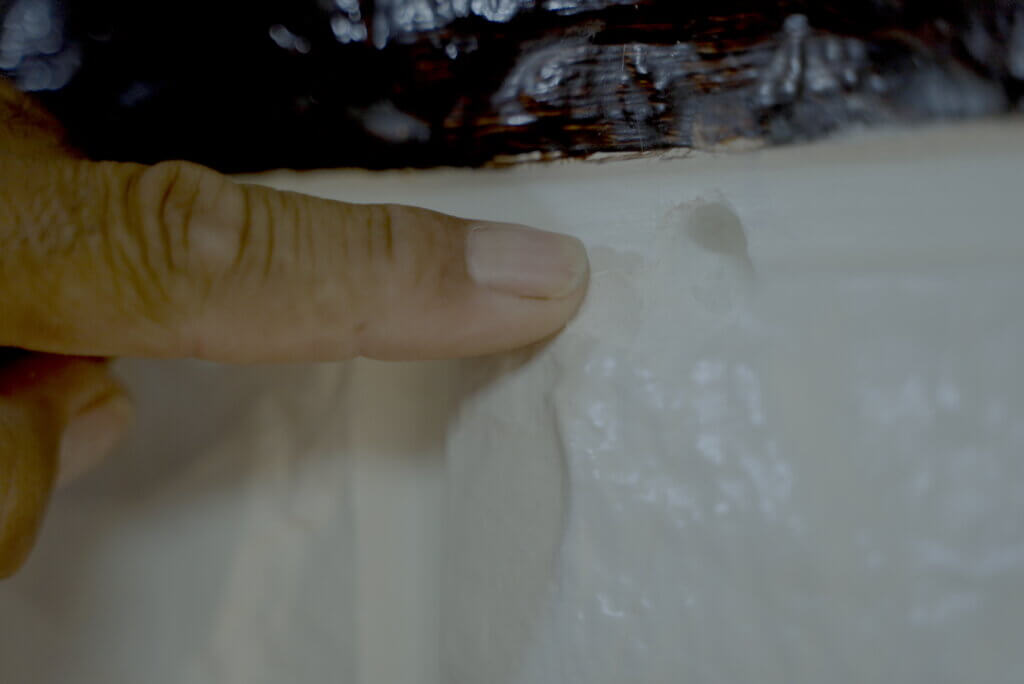
Ibrahim says that to this day, the family has not been contacted by Israeli police or intelligence officials for interrogation, questioning, or anything related to Mohammad’s death.
“To this day we don’t know what Mohammad’s crime was, or what the reason was that they entered our house the way they did and killed him,” he said. “They just killed him and disappeared.”
Mourning without a funeral
Just a few hours after Mohammad’s body had been dragged out of al-Shaham’s home, Ibrahim got a call from the Palestinian Authority liaison that Mohammad was dead. He asked the authorities when his son’s body would be returned to the family, but he got no answer.
An autopsy conducted on his body 10 days after his death showed that he was hit by three bullets: one to the head, chest, and waist.
Now, one month later, his son’s body has still not been returned, and the family has been left in a state of limbo.
“Everyday we mourn our son, but it’s difficult to accept things when we can’t hold his body and give him a proper burial,” Ibrahim said, his eyes welling up with tears.

In the Islamic tradition, the dead must be buried at the soonest possible time after death. For dozens of families of Palestinians who have been killed by Israeli forces, however, they have never been able to fulfill their religious obligations, or get closure after the death of their loved ones.
For decades Israel has employed a policy of confiscating and withholding the bodies of Palestinians who Israel accuses of carrying out, or attempting to carry out, attacks against Israelis.
The policy began after 1967, resulting in the burial of hundreds of Palestinians in the infamous “cemeteries of numbers.” Since a spate of lone-wolf stabbing attacks targeting Israeli armed forces in 2015, Israel reignited the policy under the purview of then prime minister Benjamin Netanyahu.
Initially meant to target members of the Hamas movement who carried out “significant” operations, the policy was amended in 2020 by the Israeli Security Cabinet to allow for Israeli forces to detain and withhold the bodies of any Palestinian accused of carrying out an attack.
Since then numerous Palestinians who were killed in circumstances where no one was injured, but Israeli forces claimed an attack, have had their bodies withheld from their families.
It’s a policy that’s been widely condemned by rights groups as collective punishment against Palestinian families, and a violation of international law.
According to reports, Israel has withheld the bodies of at least 350 bodies of Palestinians since 2015, keeping their bodies in refrigerators while their families wait anxiously, never knowing if or when their loved ones will be returned to them.
“We just want to be able to bury him, and put his body in the ground. The ground will be warmer than the refrigerators of the occupation,” Ibrahim said, choking back tears.
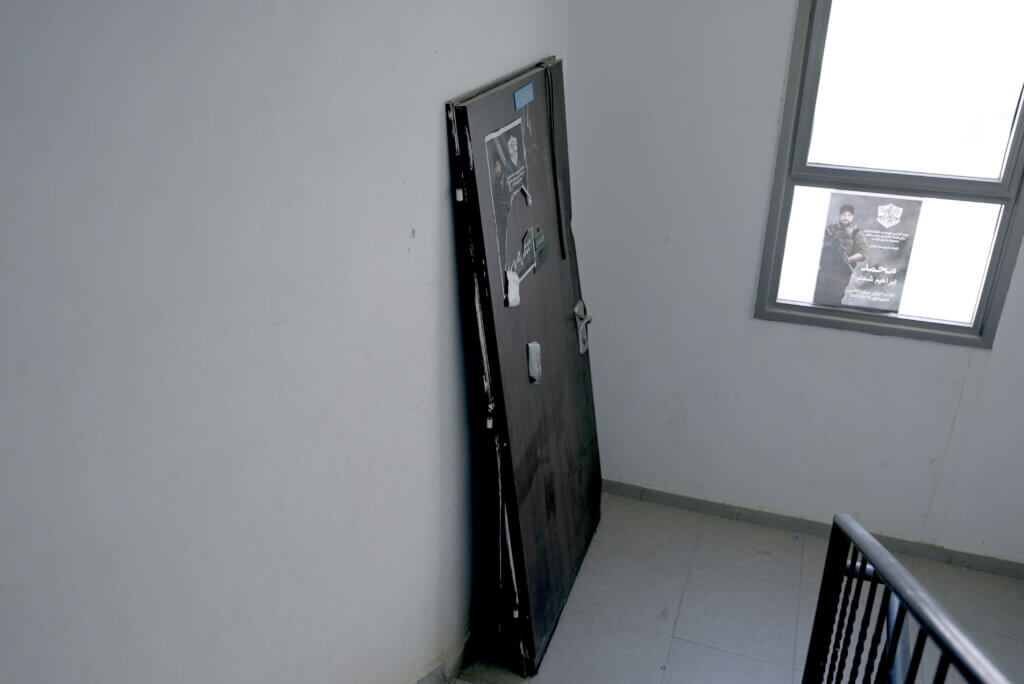
On September 22nd, the Israeli Supreme Court will convene to hear an appeal by the al-Shaham family to have Mohammad’s body returned.
Ibrahim said he has little faith in the Israeli legal system to serve justice for his son.
“I put my faith in God, and pray that Mohammad will be returned to us,” he said.
“This occupation is unjust, there is nothing more to be said about them.”
Yumna Patel
Yumna Patel is the Palestine News Director for Mondoweiss.
This movement needs a newsroom that can cover all of Palestine and the global Palestinian freedom movement.
The Israeli government and its economic, cultural, and political backers here in the U.S. have made a decades-long investment in silencing and delegitimizing Palestinian voices.
We’re building a powerful challenge to those mainstream norms, and proving that listening to Palestinians is essential for moving the needle.
Become a donor today and support our critical work.
Related posts:
Views: 0
 RSS Feed
RSS Feed

















 September 18th, 2022
September 18th, 2022  Awake Goy
Awake Goy  Posted in
Posted in  Tags:
Tags: 
















